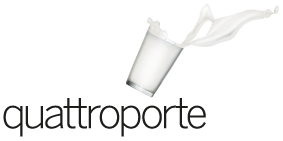Reporting from the front
2016 Venice biennale is using architecture to bring us news from the frontline. Curator Alejandro Aravena has tried to find answers to the important issues of our time, migration, inequality and housing shortages. This kind of fervour to improve the world can easily become grandiose and sweeping. Quite often it teeters over into comedy when a ”starchitect” instantly solves the worlds problems with a new building. There was very little of this on display this year. If anything we were treated to toned-down humanism and positive thirst for discovery. Quite unexpected actually. If this really reveals the path to the future or not remains to be seen. If Aravena is correct this current development and sense of dystopia in the world should be broken soon.
The meaningful society
In the infinitely beautiful exhibit Losing Myself Niall McLaughlin och Yeoryia Manolopoulou shows that it is possible to create something meaningful for people who are gradually losing themselves. By designing a building for people with Alzheimer they want to show that a meaningful life can be had even when points like yesterday/today and the self have lost their meaning. The process on display hardly represents greater expenses. Only a great deal of respect, the antithesis of Swedish care for the elderly and those suffering from dementia. The exhibit was on show in the Irish pavilion.
To achieve something greater and more meaningful some people want to trade lives. It could be a religious festival, a Burning Man or just a journey with no return ticket. New structures are required to meet this growing trend of migrations. Rahul Mehrotra and Felipe Vera claim that what we need is a transient urbanity, a so called ephemeral urbanism, that acts as temporary spaces with a high quality of life. The trio maintains that permanence is exaggerated in urban planning today. The thought of fleeting urban development may seem frightening to those who thrive on order, something that is echoed in the debates about module housing. I think that mankind, in an increasingly nomadic society, needs to realise that the transient can be just as meaningful and beautiful as something that lasts a 1000 years.
Norman Foster and their Droneport has seen lively discussion. Through simple design they give people the opportunity to quickly establish infrastructure in places that suffer shortages. Small scale, clever use of new technology in a way that respects local cultural conditions, can enhance quality of life which in turn increases faith in a better future in places that only know hardship today.
Italy has developed a partially novel process for urban development. Taking Care – Designing for the Common Good is the basic philosophy of this new process. The most relevant aspect here is that Italy is showing that it’s possible to carry out projects based in this new thinking. The exhibition shows a large number of examples of how they have married old agricultural culture and practices with the expectations of the noughties-generation. Proof that new meaningfulness can be created even in the age of automation and digitalisation.
We need to realise that the world is constantly changing. That change is a normal condition. The Post-war era that we imagined would be lasting is proving to be a mere parenthesis. The world is big and humanity is numerous. Goodness and humanism is greater than any number of ISIS and this is what Aravena wants to show us. He provides us with small, temporary and limited solutions to the worlds problems. He’s saying “Together we can fix this”, and my answer is “Sure, why not?”
Quattroporte will continue to work with understanding what the meaningful society and the meaningful economy will mean for societal development both on a grand scale as well as a small one. Now and in the future.
Peter Majanen
(Founder & CEO, Quattroporte Konsult)
